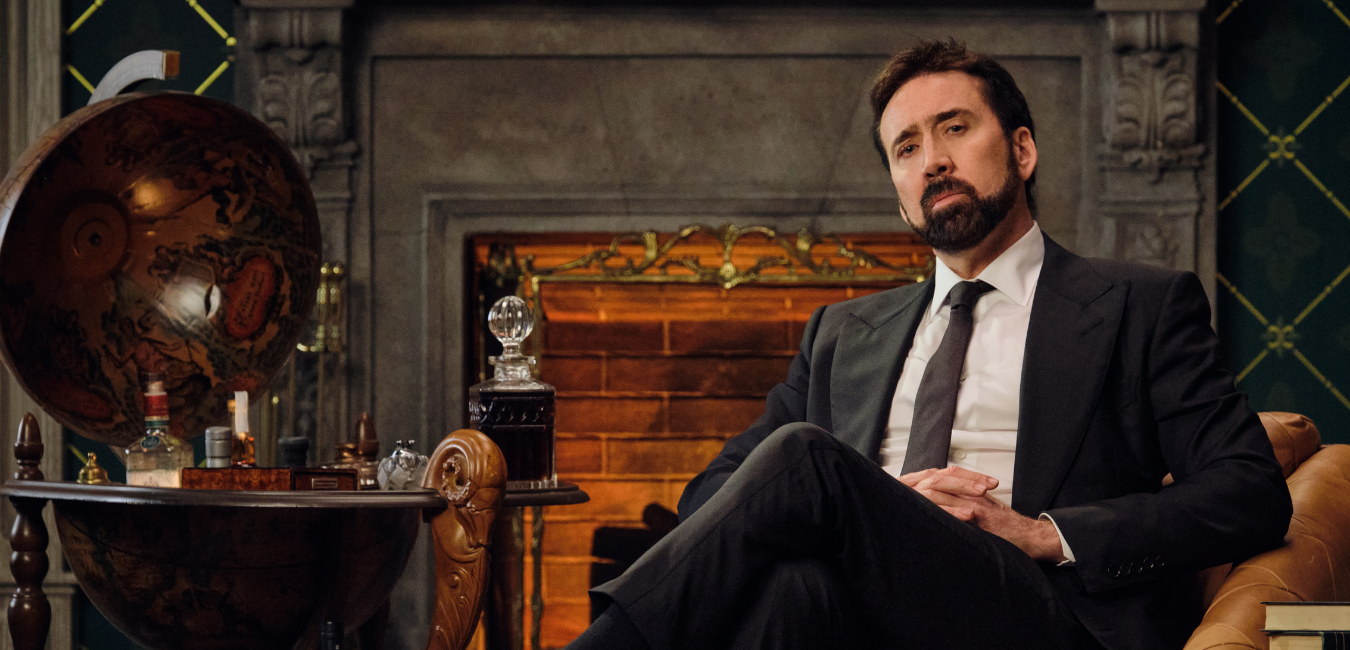
“Clown in a Cornfield finds” a good balance of slasher and comedy
After an eight-year hiatus, cult director Eli Craig returns to the horror-comedy genre with his latest film, “Clown in a Cornfield,” from RLJE Films.


Netflix continues to always have something for everyone to watch with their new series History of Swear Words. Collaborating with production Companies: Funny or Die and B17 Entertainment, Netflix gives viewers an education in expletives. It’s the history lesson you didn’t know you needed, and it’s hosted by Nicolas Cage.
The series is a loud and proudly profane series that explores the origins, pop culture-usage, science, and cultural impact of curse words. Through interviews with experts in etymology, pop culture, historians, and entertainers, the six-episode series dives into the origins of “F**k,” “Sh*t,” “B*tch,” “D**k,” “Pu**y,” and “Damn.”
Throughout six twenty-minute episodes, History of Swear Words is hilarious and, dare I say, a thought-provoking look at profanity. Showrunner Bellamie Blackstone was very passionate about this project. Instead of showing random clips, it gives us some of the words and the history behind the words. For example, Benjamin K. Bergen, a Professor of Cognitive Science at the University of California, San Diego, provides excellent commentary on the “F” word. The way he breaks down and explains how its used makes so much sense once you learn the context. No matter what the situation, you can generally find a way to use the “F” word.
This sentiment carries over to the remaining five episodes, with each one breaking down the appropriate or inappropriate times to use a swear word and how much it has changed over the years. I would have to say my favorite episode was the “B*tch” Episode, where guests, including female comics such as Kim Booster, Nikki Glaser, and Sarah Silverman, all delight in using the word. Now I’m not condoning ever calling a woman out of her name, but it was refreshing to hear the ladies take ownership of a once seen vile word, reclaim it, and turn the word into something positive.
I also have high praise for episode 2, which focuses on the “Sh*t” word. This episode features great commentary from The Wire actor Isiah Whitlock Jr. whose usage of the word made him an overnight sensation. Credit must also go to comics Nick Offerman and DeRay Davis, who provide hilarious commentary throughout the series duration as well.
Our host Nicolas Cage brings his nouveau shamanic acting style to every opening and closing of the show. Yes, Mr. Cage has had some stinkers over the years. However, I’ve always admired his method of acting in his early films. History of Swear Words is all about Mr. Cage having fun, and it wouldn’t surprise me if, at some point, he plays a comedian on screen. Whether we get a season 2 or if Netflix decides to start a “History of” franchise, I hope Cage stays on as host. I would love to see his nouveau shamanic take on the history of slang words or memes.
Featuring classic movie clips, funny montages, and insightful social commentary, History of Swear Words is a great watch if you need a quick laugh. Each episode is just the right length, and the series never overstays its welcome.
Final Grade: B+
History of Swear Words is available to stream on Netflix on 7 January.


After an eight-year hiatus, cult director Eli Craig returns to the horror-comedy genre with his latest film, “Clown in a Cornfield,” from RLJE Films.

First-time director Felipe Vargas explores the consequences of forgetting one’s roots in the chilling horror film “Rosario,” produced by Highland Film Group and Muchio Mass Media. Alan Trezza wrote the screenplay, which begins with our titular character, a Mexican immigrant, receiving her first communion. After a spooky incident involving her eerie grandmother, it becomes evident that Rosario is destined to move on when she grows older.

Director Duncan Skiles taps into the buddy pic genre for his feature debut in “Neighborhood Watch” from RJLE Films. Simon (Jack Quaid) is a young man grappling with mental illness who becomes convinced that he has witnessed an abduction. When he reports it to the police, and they refuse to believe him, he reluctantly seeks the help of his neighbor Ed (Jeffrey Dean Morgan), a jaded, retired security guard with a troubled past. As the unlikely duo delves deeper into the mystery, their pursuit of the truth forces them to confront the disappearance’s dark secrets and the unspoken wounds that haunt them.
Reviews And Dunn is a unique blog showcasing all things cinema, music & theater.